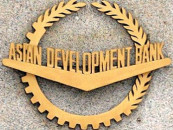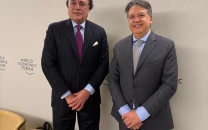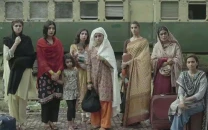Good neighbours?: India duty-free deal ‘game-changer’ for Bangladesh
Pakistan’s bid to get access for its textile products to the EU was blocked by Delhi.

As Abdus Salam Murshedey strolls through his vast garment factory in Dhaka, hundreds of seamstresses stitch shirts for export shipments he says will be boosted by a relaxing of Indian import rules.
Murshedey has built his company, Envoy Group, into a multi-million dollar firm with 18,000 employees on the back of orders from major Western high street brands including Zara, Next and French retail giant Carrefour.
But the shirts the women are working on are for top Indian retailer Pantaloon, and since India recently granted immediate duty-free access to 46 Bangladeshi garment types, Murshedey says orders like this are set to rise.
“I’m going to have to recruit thousands of new workers to meet new Indian orders. Already we’ve received lots of queries from Indian retailers,” he said.
For decades, New Delhi imposed quota restrictions on Bangladeshi garments, limiting duty-free exports to 10 million pieces a year. Murshedey, for example, could only accept Indian orders for up to 300,000 items annually.
“Pantaloon is happy with our quality and price. But we could not raise orders because of the quota bar,” he told AFP.
Bangladesh is the world’s third-largest garment producer, exporting $19 billion of apparel in the year to June 2011. Indian orders accounted for a tiny percentage of this.
The garment industry, which accounts for 80 per cent of the impoverished country’s total exports, relies on orders from European and North American retailers such as Sweden’s H&M, America’s Gap and British supermarket Tesco.
The dependence on the EU and North America worries exporters like Murshedey, who say orders are slowing due to fears of a double dip recession. This is why, he says, he’s relieved by India’s recent announcement.
“The duty-free decision by India means we can now combat any slump in EU and US orders. Our export potential to India is now unlimited,” he said.
Prime Minister Manmohan Singh announced the garment deal during a historic trip to Dhaka earlier this month, in an effort to address long-standing grievances over a multi-billion-dollar trade imbalance in India’s favour.
Dhaka’s exports are worth just one-ninth of the $4.5 billion of goods India shipped to Bangladesh in the 2010-11 financial year.
The garment deal is the best thing to have happened to the sector since the 1990s, when similar duty-free access to the EU transformed Bangladesh’s apparel trade into a multi-billion dollar industry, say insiders.
“It will be game-changer in our trade ties,” said Salim Osman, head of the Bangladesh Knitwear Manufacturers and Exporters Association (BKMEA).
Osman said the duty-free access “represents a realistic chance” for Bangladesh to wipe out the trade deficit for the first time in four decades.
“We can raise our exports to as much as $5 billion by 2015,” he said, adding it will create hundreds of thousands of new jobs and make India the country’s third-largest market after the United States and the EU.
According to the BKMEA, the new duty-free deal will allow Bangladeshi-made shirts, trousers, ladies’ wear, children’s wear, t-shirts and jeans access to Indian markets.
These items are what have made fortunes for Bangladeshi factory owners as the country’s cheap labour means they enjoy a competitive advantage on basic, low-cost goods over their global rivals.
“The beauty of the latest offer is it does not have any strings or quotas attached,” said Shafiul Islam Mohiuddin, head of the 4,500-factory strong Bangladesh Garment Manufacturers and Exporters Association.
Indian factories should not be alarmed by the new deal, he said, because many Bangladeshi factories use Indian cotton and yarn to produce the apparel.
But already there have been protests in India, with textile groups pleading with the government to stop the new trade access. Experts say the Indian government must stick to its guns.
“The duty-free access is a reflection that India genuinely believes in much stronger ties with Bangladesh,” said Ifty Islam, a Dhaka-based partner at Asian Tiger Capital.
“India opening its markets means a lot to Bangladeshi industry. It will allow Bangladesh to diversify its export market away from Europe and America to Asia,” he added.
Published in The Express Tribune, September 19th, 2011.



















COMMENTS
Comments are moderated and generally will be posted if they are on-topic and not abusive.
For more information, please see our Comments FAQ